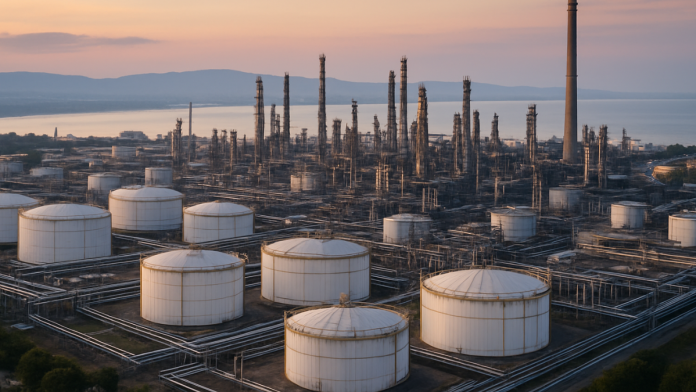Bulgaria has taken a firm and urgent step to protect its fuel supplies after international sanctions were placed on Russia’s Lukoil, which operates in the country. The move has attracted attention across Europe because it affects fuel movement, market stability, and energy security in the region.
Bulgaria’s Parliament has temporarily banned the export of certain fuels, mainly diesel and aviation fuel, to other European Union (EU) countries. These fuels are widely used for transport, airlines, and defence. The decision aims to keep enough fuel inside Bulgaria, as the country fears possible shortages following U.S. sanctions on Lukoil, the company that runs Bulgaria’s largest oil refinery.
The decision received strong backing in Parliament, with most lawmakers supporting it as a necessary step to safeguard the country’s energy needs. Only a few opposed it, while some abstained from voting.
Even with the restrictions, Bulgaria has not stopped all fuel movement. Fuel will still be allowed for refuelling ships and aircraft, as well as for military supplies to EU and NATO member states. This is to ensure that essential services, defence activities, and international transport continue smoothly while Bulgaria increases control over its fuel reserves.
Sanctions on Lukoil Triggered the Decision
The main reason behind this export ban is the U.S. sanctions placed on Lukoil and Rosneft, which are linked to Russia. Lukoil is responsible for running Bulgaria’s largest oil refinery. The refinery plays a key role in the country’s fuel production and is the main source of petrol, diesel, and jet fuel.
The sanctions are part of the wider international response to the ongoing conflict involving Russia. Because of these sanctions, Bulgaria worried that fuel supply chains could be disrupted, or that Lukoil’s operations might face challenges which could cause shortages.
To avoid sudden fuel problems and price hikes, the Bulgarian government announced last week that it would take steps to secure the steady supply of oil and fuel products in the country. The export ban was one of the major steps taken to ensure there is no risk to the public or businesses that rely on fuel every day.
Shocking: US targets Russia’s top oil companies with sweeping sanctions
Government Measures to Monitor and Control Fuel Stocks
As part of this new action, the Bulgarian Parliament has also asked its customs agency to strictly monitor fuel exports. The customs director has been given the power to stop exports of restricted fuel products. In special cases, the official may allow exports if needed, but it will be carefully controlled.
Other national agencies have also been directed to increase inspections. The State Agency for Reserve and Wartime Stocks has been asked to check how much fuel the country currently has in storage. This inspection will take place within one week to ensure clear and accurate information about national fuel reserves.
These steps show that Bulgaria wants to stay prepared and avoid any emergency situation where fuel might become limited or too expensive for citizens and industries. The focus is to maintain enough supply inside the country before risking any export activity.
Lukoil Refinery in Focus After Sanctions
Because Lukoil’s such a large role in Bulgaria’s fuel system, the sanctions made the government uneasy about depending on it without protective measures.
Shortly after the sanctions were announced, Lukoil revealed that it had accepted an offer from global energy trading firm Gunvor to buy its foreign assets. This means the company is preparing to reduce its presence outside its home country, likely because of the financial and trade restrictions now placed against it.
This new development has created uncertainty in Bulgaria’s fuel sector, and the government wants to avoid sudden disruptions. The export ban and close supervision of fuel stocks are seen as necessary to maintain stable access to fuel during this time.


